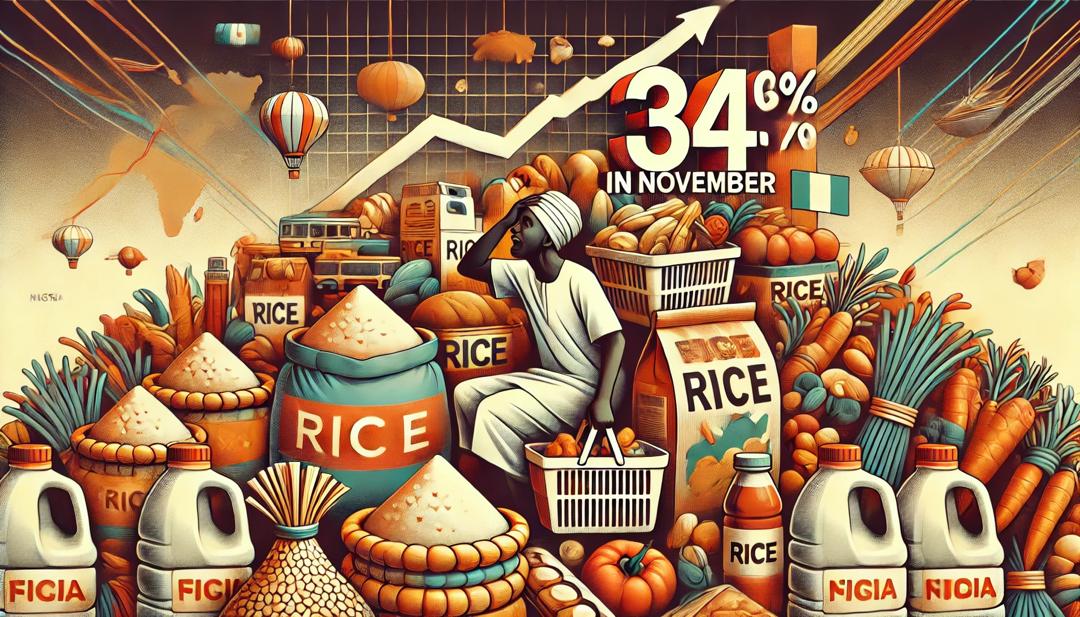Nigeria’s inflation rate surged to 34.60% in November 2024, marking a 0.72 percentage point increase from October’s figure of 33.88%, according to the latest Consumer Price Index (CPI) report released by the National Bureau of Statistics (NBS) on Monday.
On a year-on-year basis, this represents a significant spike of 6.40 percentage points compared to the 28.20% recorded in November 2023, highlighting mounting economic pressures and a rising cost of living across the country.
In November 2024, the headline inflation rate was 34.60% relative to the October 2024 rate of 33.88%. Looking at the movement, the November 2024 rate showed an increase of 0.72 percentage points compared to October. On a year-on-year basis, the rate was 6.40 percentage points higher than November 2023.
The inflation spike is largely driven by food price increases, which continue to strain Nigerian households. Food inflation climbed to 39.93% in November 2024, compared to 32.84% in the same month last year.
Staple foods such as yam, rice, maize, and palm oil saw sharp price surges, alongside other essentials like guinea corn, millet, and meat. On a month-on-month basis, food inflation rose slightly to 2.98% in November, up from 2.94% in October, with price hikes recorded in fish, dairy products, and meats.
The twelve-month average food inflation rate now stands at 38.67%, a notable increase of 11.58 percentage points from the previous year’s 27.09%, reflecting persistent challenges in managing food supply chains and meeting domestic demand.
Core inflation, which excludes volatile food and energy prices, also rose to 28.75% in November 2024, compared to 22.38% in November 2023. The increase highlights escalating costs in sectors such as transportation, housing, and personal services.
Items contributing to the rise include taxi fares, bus journeys, housing rents, and personal grooming services. On a month-on-month basis, core inflation dipped slightly to 1.83% in November, down from 2.14% in October. However, the twelve-month average for core inflation increased to 26.64%, up from 20.35% recorded a year earlier.
The sharp year-on-year increase underscores the ongoing economic pressures facing Nigerians. Food prices remain the key driver of inflation, exacerbating the cost-of-living crisis and deepening household struggles. Rising costs across other sectors further reflect the widespread nature of the inflationary trend, posing significant challenges for in stabilising prices and addressing supply chain disruptions.
